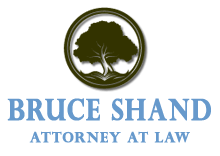A Utah Medicaid Primer 101
If you have elderly parents, don’t wait to learn about Medicaid — sometimes referred to by a litany of other state names, like Medi-Cal and MassHealth.
What is your Medicaid IQ? Most Americans have heard of Medicaid, since it has been part of the national political debate for some time. A political discussion is one thing, but what does Medicaid mean to your elderly loved ones?
If you have elderly parents, it is high time to learn about Medicaid and how it works.
Fortunately, a recent Forbes article is a good place to start. The article is aptly titled “Medicaid And Your Parents: The Basics.” Essentially, Medicaid is a program run jointly by the federal government and each respective state government. Think of it as government insurance for, among other things, late-in-life medical care like home care or nursing home care when the one needing care has too limited financial resources.
Medicaid is “means-tested.” Consequently, having too great an income and/or too much in assets will disqualify a Medicaid applicant and create a legal hurdle to receiving benefits. Currently, in Utah for a single person to qualify for aged, blind, disabled Medicaid, that person can have no more than $2,000 in non-exempt assets. In addition, having “assets” is not the same as having the money to pay for care.
For those with assets exceeding the Medicaid limits, “giving” assets away will only disqualify them from Medicaid assistance if the transfers violate the “look back” period designed to keep them from gaming the system. Currently the look back period is 60 months. Of course, an elderly individual might have had innocent intentions when they made a disqualifying gift a few years ago and the need for Medicaid was unforeseen. Regardless, such transfers are a red flag when it comes to Medicaid qualification.
Each state is subtly different in its approach, but these are very real rules and they require careful thought and timing. Otherwise, it is easy to run afoul of the rules now and be disqualified from care later. You owe it to your elderly loved ones to start planning for a worst case scenario without delay.
Reference: Forbes (February 11, 2014) “Medicaid And Your Parents: The Basics”






